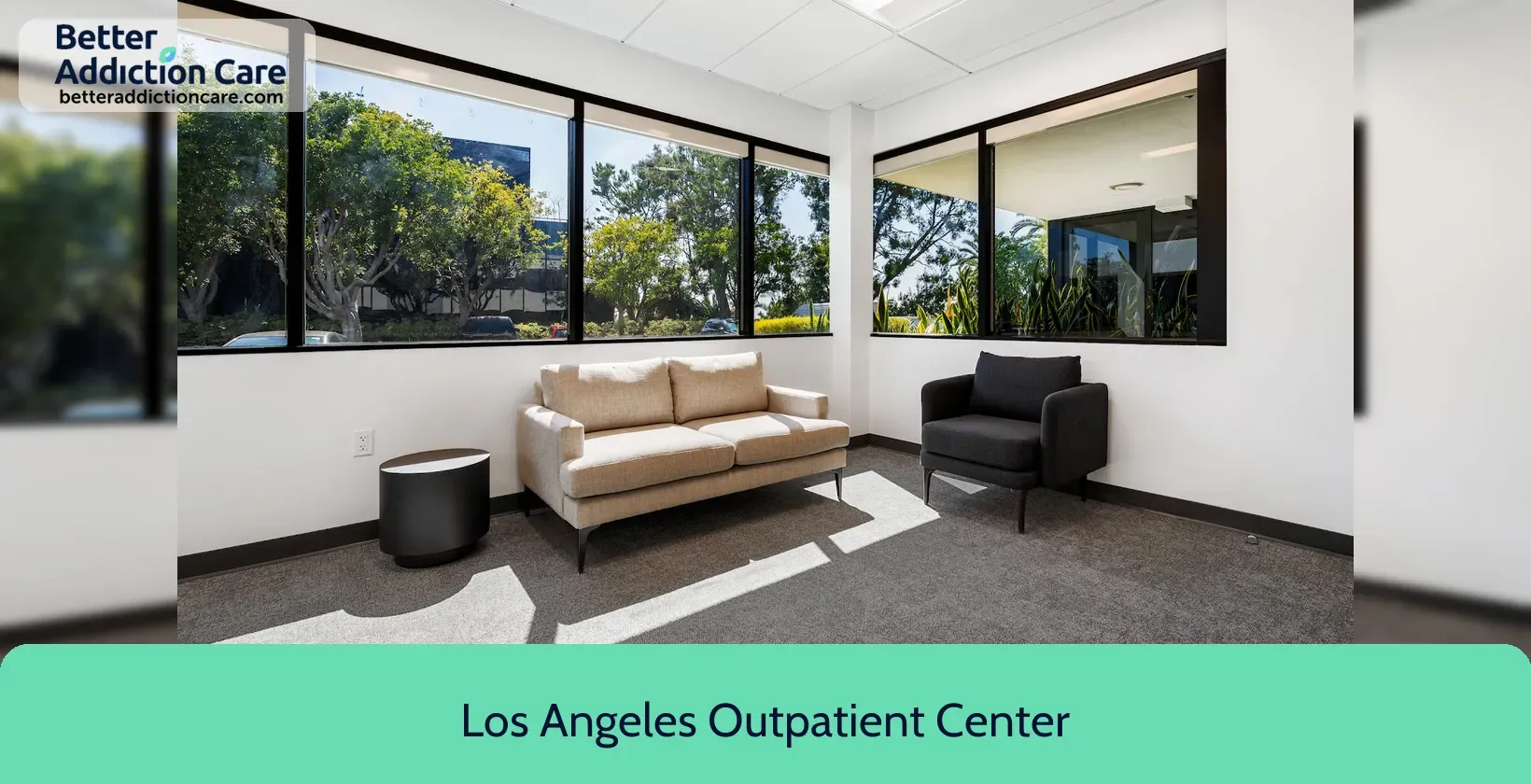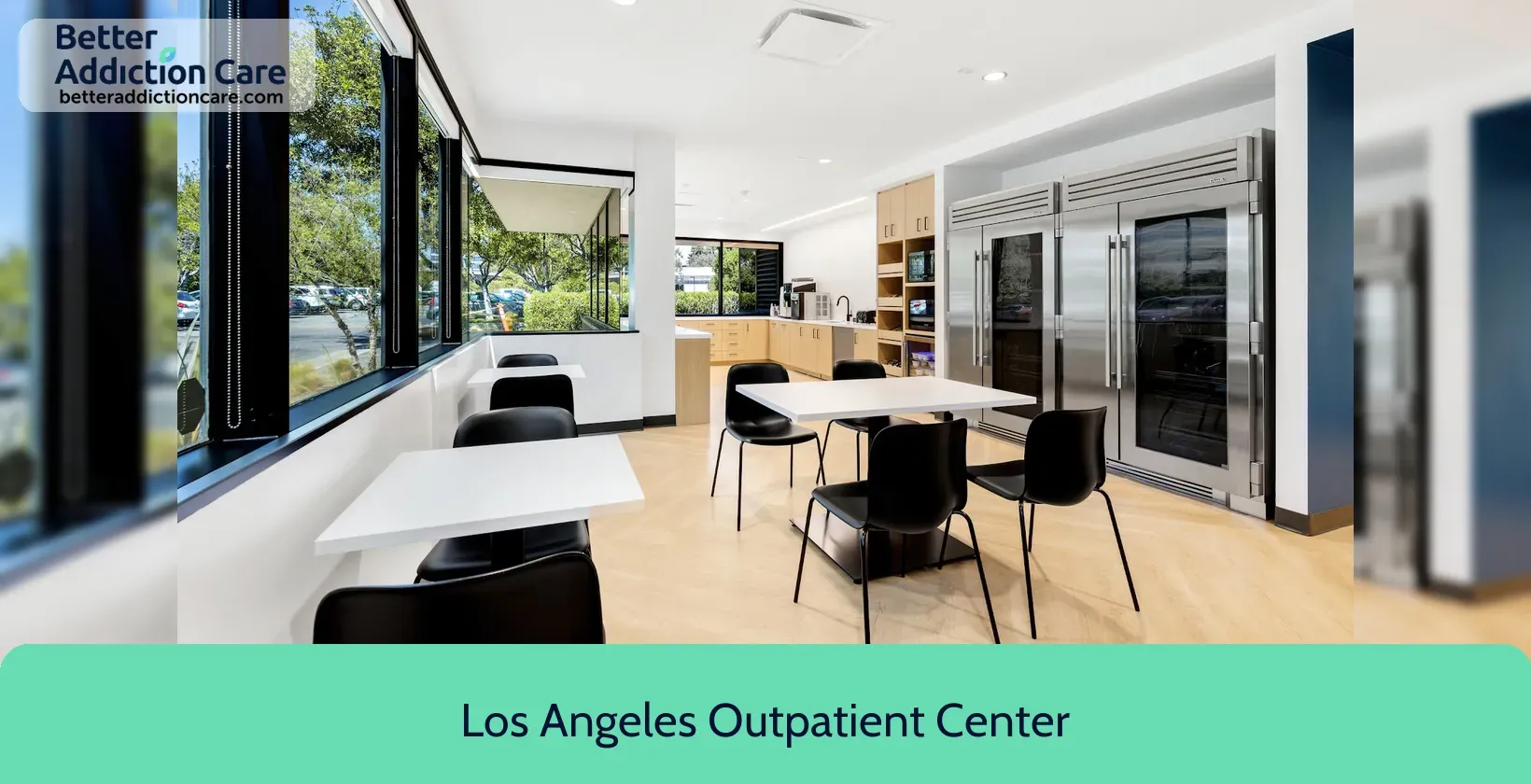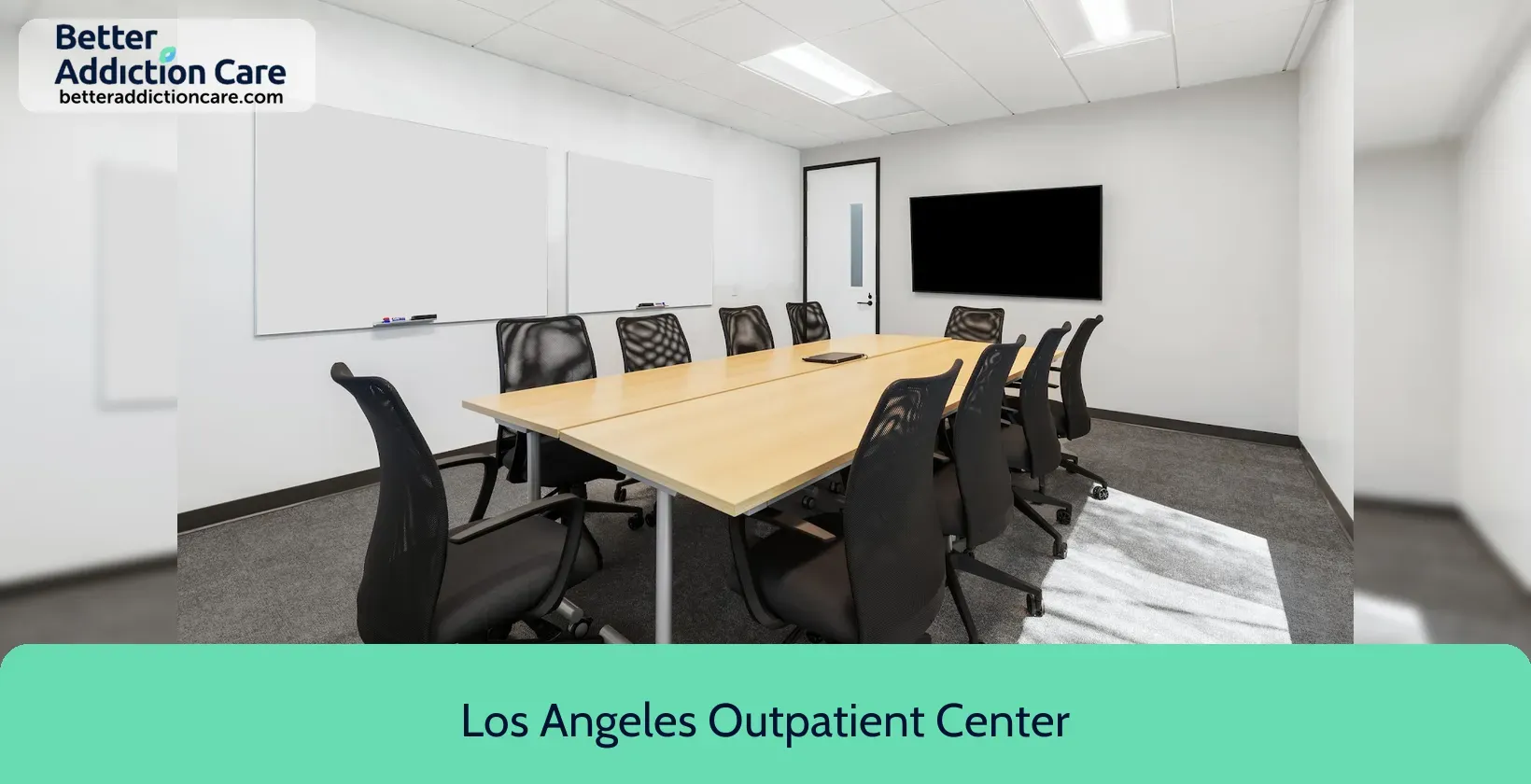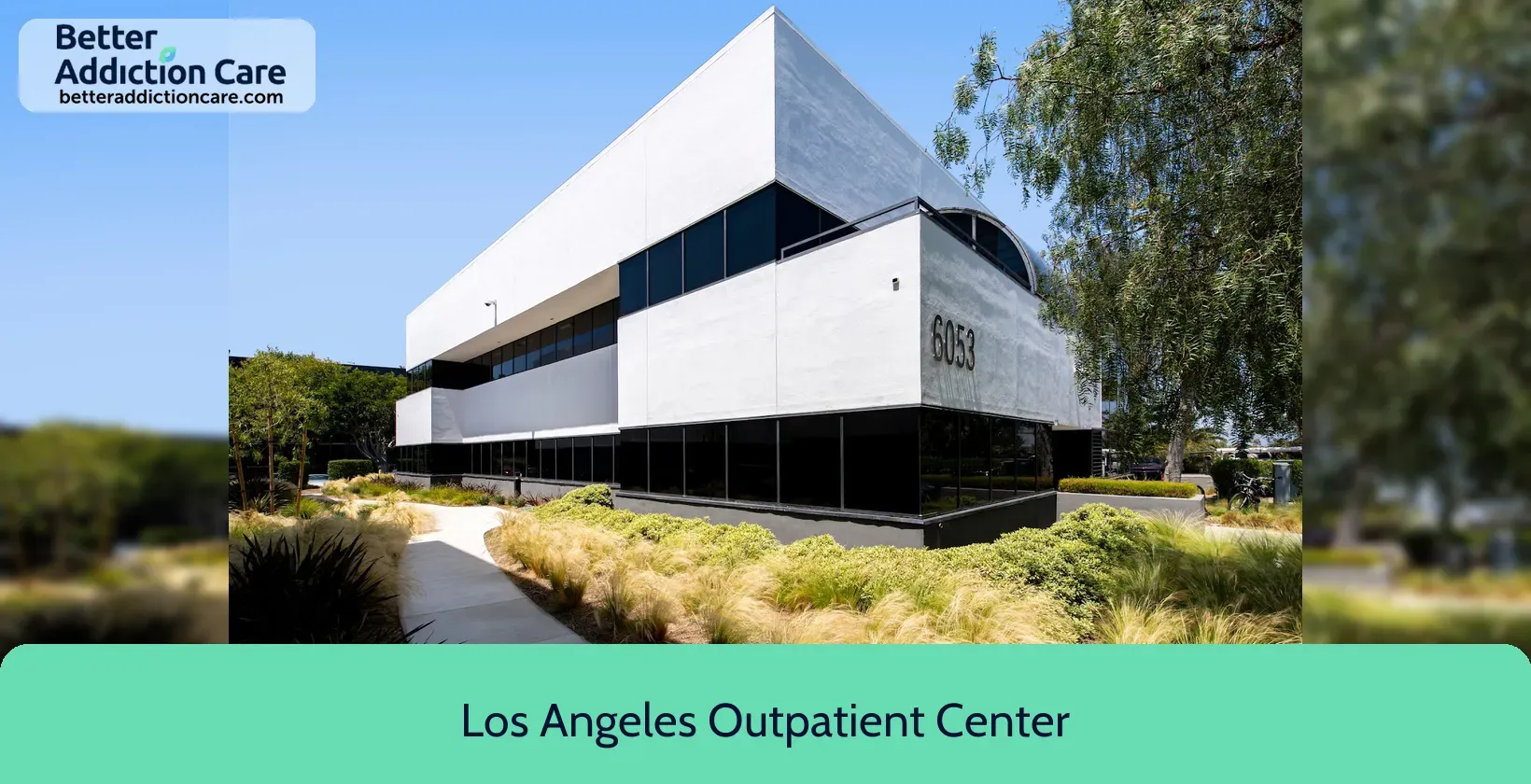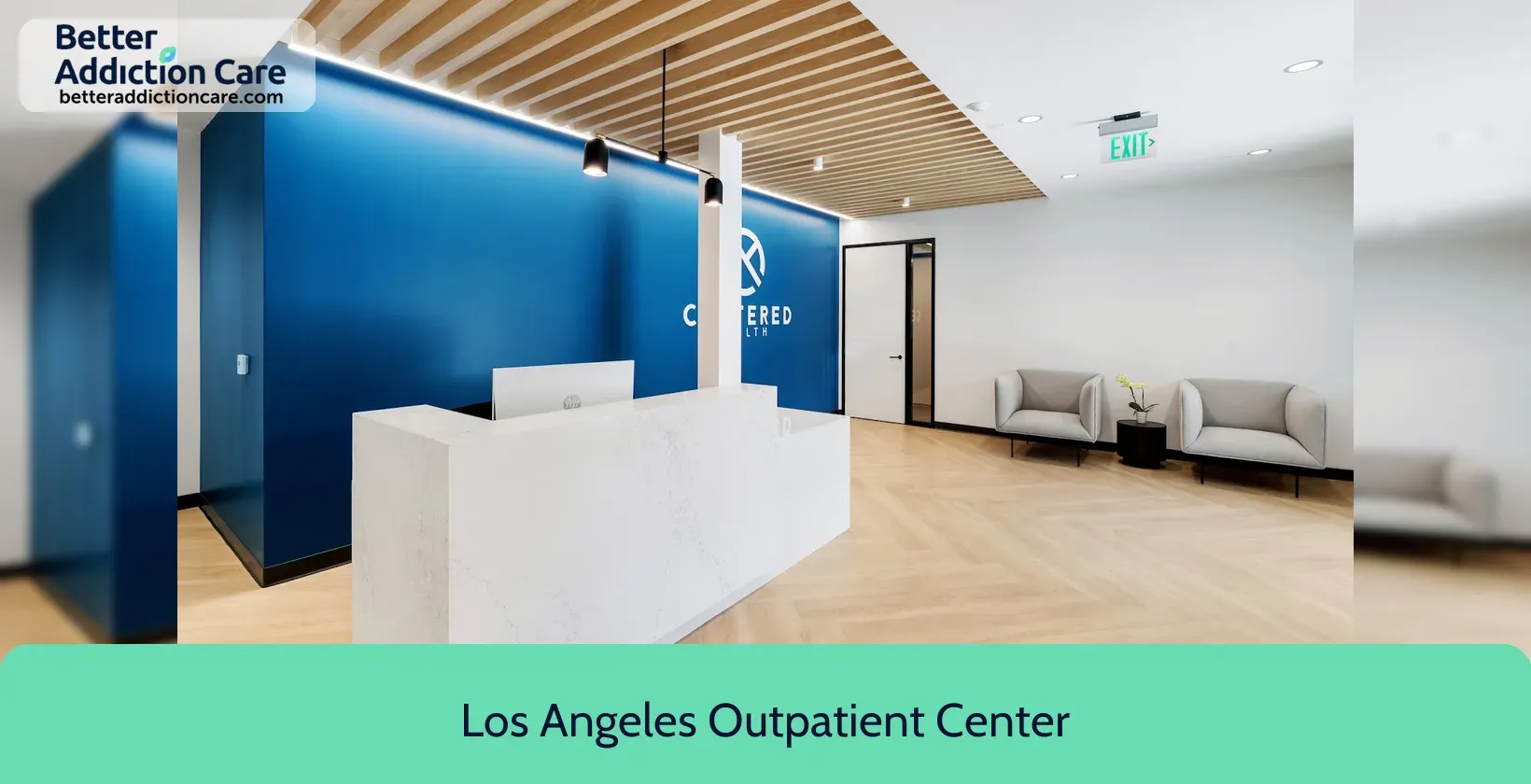Los Angeles Outpatient Center
Overview
Los Angeles Outpatient Center, located in Culver City, California, is a premier facility dedicated to delivering comprehensive mental health programs for individuals aged 18 and older. Serving both men and women, the center is focused on supporting clients through a range of specialized services designed to foster lasting wellness.
The center offers three primary programs: the Partial Hospitalization Program (PHP), Telehealth Services, and the Intensive Outpatient Program (IOP). Each program is meticulously structured to provide the appropriate level of care, with treatment durations varying from 30 to 90 days based on individual needs and circumstances. The facility accommodates between 31 to 50 clients at a time, ensuring a supportive and concentrated therapeutic environment.
Los Angeles Outpatient Center is known for its inclusive and supportive atmosphere, with a strong commitment to the LGBTQ+ community. The center's dedicated team of professionals crafts individualized treatment plans tailored to address each client's unique needs. Therapeutic services at the center are diverse and evidence-based, including Transcranial Magnetic Stimulation (TMS), Cognitive Behavioral Therapy (CBT), Dialectical Behavior Therapy (DBT), Internal Family Systems (IFS) Therapy, and Interpersonal Therapy (IPT), as well as creative therapies such as gardening and art therapy. These modalities are designed to promote holistic healing and emotional well-being.
Additionally, the center features a robust Alumni Program that offers continued support to clients after they complete their initial treatment, assisting them in maintaining progress and staying connected with a supportive community. Los Angeles Outpatient Center’s commitment to excellence is affirmed by its accreditation from the Commission on Accreditation of Rehabilitation Facilities (CARF).
Los Angeles Outpatient Center at a Glance
Payment Options
- Cash or self-payment
- Private health insurance
- Self-pay options
- Aetna
- Anthem Blue Cross and Blue Shield
Assessments
- Comprehensive mental health assessment
- Screening for mental disorders
- Complete medical history/physical exam
Age Groups
- Young adults
- Adults
Operation
- Private for-profit organization
- Treatment duration
Highlights About Los Angeles Outpatient Center
7.09/10
With an overall rating of 7.09/10, this facility has following balanced range of services. Alcohol Rehabilitation: 8.00/10, Drug Rehab and Detox: 6.00/10, Insurance and Payments: 6.80/10, Treatment Options: 7.58/10.-
Alcohol Rehabilitation 8.00
-
Treatment Options 7.58
-
Insurance and Payments 6.80
-
Drug Rehab and Detox 6.00
Accreditations
State department of health:

Government agencies issue State Licenses, granting permission to rehabilitation organizations to conduct their business operations lawfully within specific geographic regions. Generally, the particular rehabilitation programs offered by a facility and its physical location dictate the necessary licenses needed for legal operation.
Registration: 190703AP
NAATP:

The National Association of Addiction Treatment Providers (NAATP) accreditation for addiction and behavioral health is a recognized and respected certification that signifies a treatment center's commitment to delivering high-quality services in the field of addiction and behavioral health. It serves as an assurance of compliance with industry standards and best practices, ensuring that individuals seeking help receive effective and ethical care. Accreditation from NAATP demonstrates a facility's dedication to maintaining rigorous standards, fostering accountability, and prioritizing the well-being and recovery of its clients.
Commission on Accreditation of Rehabilitation Facilities (CARF):

CARF accreditation is a prestigious recognition granted to rehabilitation and human service organizations. It signifies that an organization meets high-quality standards, having undergone a rigorous evaluation process. CARF accreditation boosts an organization's credibility and ensures top-notch care for individuals with disabilities, injuries, or healthcare needs.
Treatment At Los Angeles Outpatient Center
Treatment Conditions
- Mental health treatment
Care Levels
- Luxury Treatment
- Aftercare
- Outpatient
- Partial Hospitalization Program
Treatment Modalities
- Transcranial Magnetic Stimulation
- Cognitive behavioral therapy
- Dialectical behavior therapy
- Family counseling
- Group counseling
Ancillary Services
Languages
- English
- Spanish
Special Programs
- Persons with eating disorders
- Clients who have experienced trauma
- Persons 18 and older with serious mental illness (SMI)

Additional Locations
Get Help Now
Common Questions About Los Angeles Outpatient Center
Contact Information
Other Facilities in Culver City

DISCLAIMER: The facility name, logo and brand are the property and registered trademarks of Los Angeles Outpatient Center, and are being used for identification and informational purposes only. Use of these names, logos and brands shall not imply endorsement. BetterAddictionCare.com is not affiliated with or sponsored by Los Angeles Outpatient Center.
